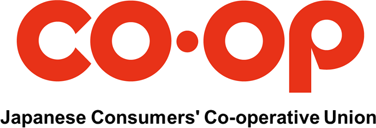Toyohiko KAGAWA
His influence on international society.
Co-operatives relate to various aspects of our daily life in Japan. As of 2018, 65 million people are members of co-operatives. Toyohiko KAGAWA, the Father of the Japanese Co-operative Movement, led the co-operative movement from the early stage. His influence was not limited to Japan but spread to the world.
This page introduces Toyohiko KAGAWA from an international perspective.
1. The Father of the Japanese Co-operative Movement
Toyohiko KAGAWA(1888-1960) devoted himself to missionary work and social reform movements from 1909 to 1960. His achievement covers a wide range from co-operative movement, farmers’ movement, labor movement to disaster aid, peace activity, and poverty prevention.
Since KAGAWA led the co-operative movement, he is called the Father of the Japanese Co-operative Movement. He established Consumer Coop Kyoeki-sha in 1920 and Kobe Consumer Cooperative in 1921. Besides consumer co-operatives, he also supported the launch of various types of co-operatives.
KAGAWA took office as the first president of the Japanese Consumer’s Co-operative Union (JCCU) in 1951. The founding declaration, which is peace-oriented, reflects KAGAWA’s will.
Peace and better living for people are the ideals of consumer co-operatives and its realization is the primary mission
2. KAGAWA’s US tour
Invitation from F. Roosevelt
F. Roosevelt, the 32nd president of the United States, was pursuing economic recovery from the Great Depression, which took place in the United States in 1929. He thought of the application of a co-operative approach to realize economic policies for positive government intervention in the market. In 1935 he invited KAGAWA to the Unites States. KAGAWA was a pioneer of co-operative and an evangelist. He was considered the right person to deliver speeches about co-operative in the United States.
Lectures in the United States.
KAGAWA stayed in the United States for six months, delivering more than five hundred speeches in 148 cities. His speech was broadcasted over the United States on the radio. It is said that, in total, 700,000 people listened to his speech.
He gave lectures under the title “Brotherhood Economics” at Colgate-Rochester Divinity School in Rochester, New York. In the lectures, KAGAWA emphasized the importance of mutual-help deeply rooted in brotherhood and explained co-operative based on mutual help. A book based on his 1936 lectures was published in the United States and then translated into 17 languages for 25 countries. His idea spread to the world.
In the United States, partly because of the influence of Kagawa's lectures, about 3,000 co-operatives were established at that time.
3. KAGAWA’s thoughts, Its succession to the EC
After finishing the lecture tour in the United States, KAGAWA went to Europe in 1936. In August, KAGAWA gave a lecture on brotherhood economics at the University of Geneva in Switzerland. At that time there were growing tensions prior to World War II. He was hoping the idea of brotherhood economics could contribute to the prevention of the war.
However, World War II broke out and ended in 1945 with numerous victims. In the process of negotiation on compensation and territorial issues, French foreign minister Robert SCHUMAN made a statement under the Schuman Declaration, proposing to place French and West German production of coal and steel under international authority. He suggested cooperative management, not the alliance’s occupation. His idea created the European Coal and Steel Community (ECSC) and later led to the European Community (EC).
In 1978, Emilio COLOMBO, the president of the European Parliament and former chairman of the European Community visited Japan. He mentioned KAGAWA in the letter published by the Mission of Japan to the European Community.
The short-sightedness of the competition must be succeeded to the wisdom of concerted action by international economic cooperation, the only way capable of advancing "towards a fraternal economy" that Toyohiko KAGAWA hoped for.
KAGAWA’s brotherhood economics thought was inherited to European communities born to overcome conflicts.
4. International Reputation
KAGAWA was introduced as one of the Three Trumpets in a book Three Trumpets Sound published in the United States in 1939, along with Gandhi who was nominated for Nobel Peace Prize five times and Schweitzer who was awarded Nobel Peace Prize. KAGAWA was nominated for Nobel Peace Prize three times from 1954 to 1956. He was also nominated for Nobel Prize in Literature in 1947 and 1948.
In 1999, UNICEF selected KAGAWA as one of the 52 leaders in the world and introduced KAGAWA ‘s achievement to “inspire government and social action to promote child rights” in The State of the World’s Children 2000.
5. For Further Information
Kagawa Archives & Resource Center (https://t-kagawa.or.jp/en)

